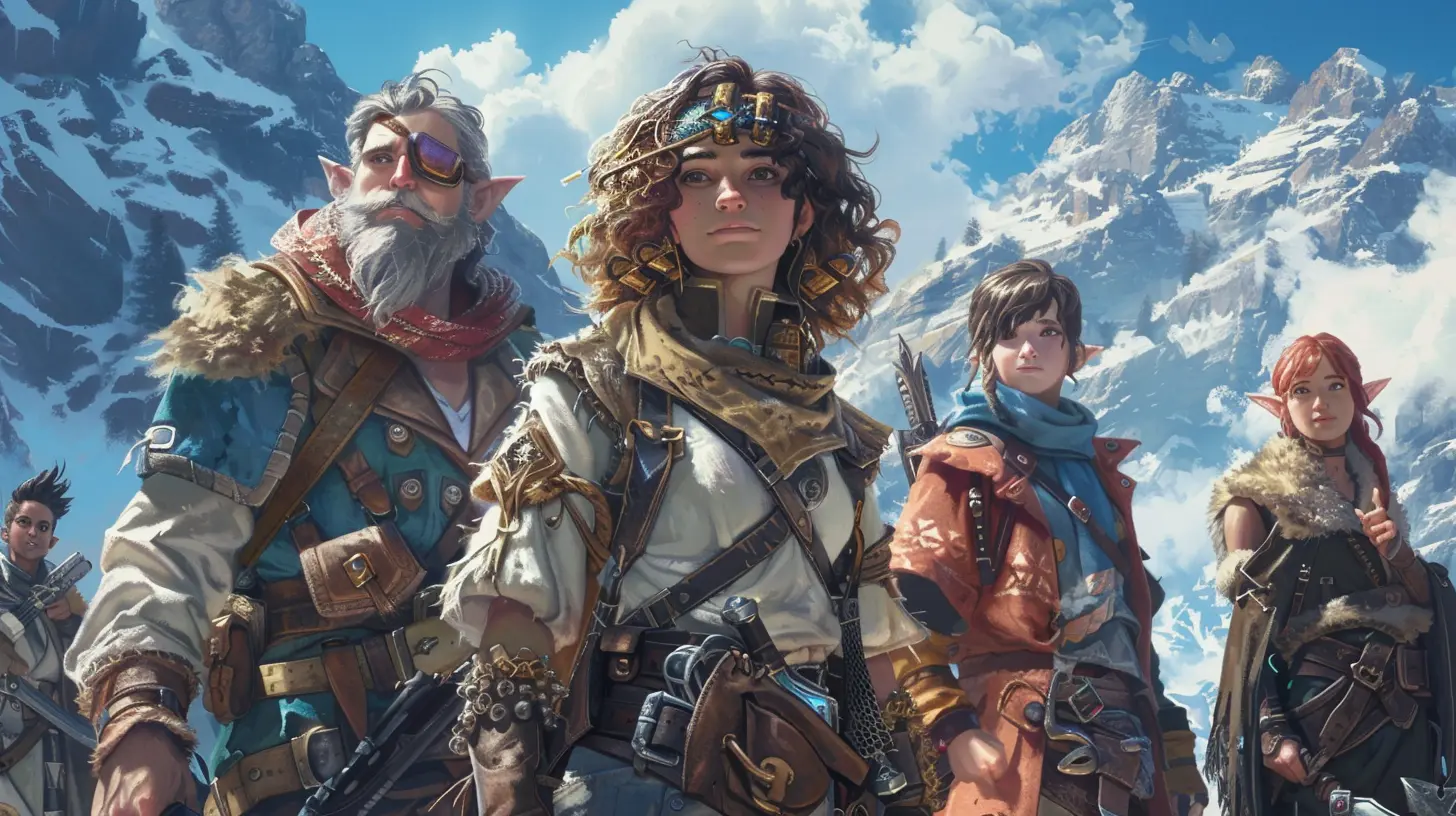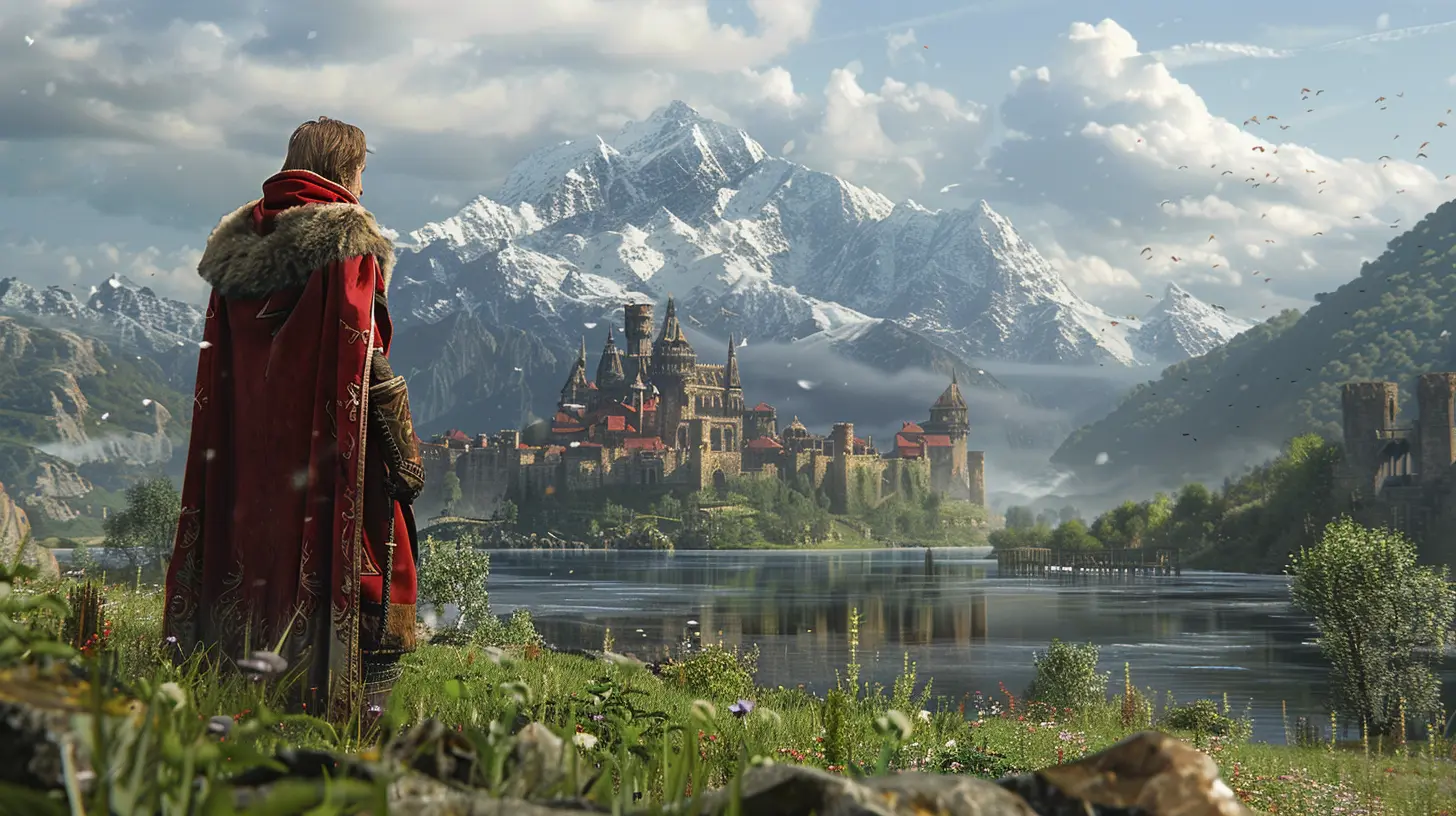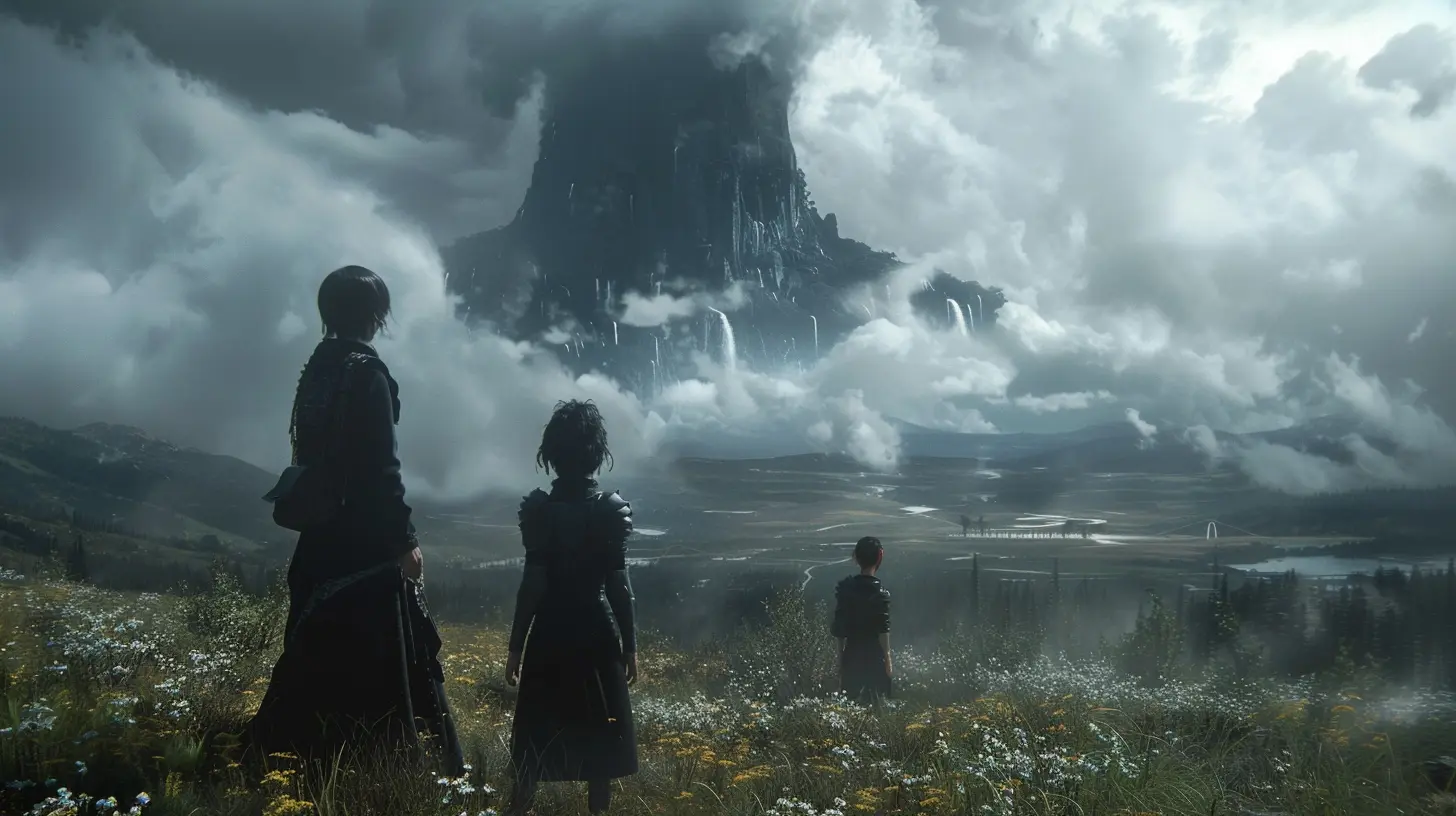The Future of Fantasy RPGs: What’s on the Horizon for Storytelling?
24 May 2025
Fantasy role-playing games (RPGs) have always been a gateway into otherworldly adventures. Whether you're slaying dragons, solving ancient riddles, or just trying to escape a goblin ambush, RPGs have this magical ability to transport you to richly woven worlds. But let's admit it—how these stories are being told has come a long way. So, what’s next? What does the future hold for storytelling in fantasy RPGs? Let’s dive in and geek out together. 
The Golden Age of Fantasy RPGs: Where Are We Now?
Before we talk about the “next big thing,” let’s take a moment to appreciate where we are. Fantasy RPGs are thriving. From massive open-world games like The Elder Scrolls V: Skyrim to story-driven gems like Divinity: Original Sin 2, we're spoiled for choice.Developers are playing with new ways to tell stories, blending cutting-edge technology with good old-fashioned fantasy tropes. But honestly, even with all these advancements, sometimes things feel… predictable, don’t they? How many times have you been the “chosen one” destined to save the world? While that’s all good fun, there’s a growing hunger for fresh and innovative ways to spin a story. 
Dynamic Storytelling: The Evolution We’ve Been Waiting For
One of the most exciting trends we’re seeing in fantasy RPGs is dynamic storytelling. Instead of following a strict narrative path, games are starting to give players more freedom to influence the course of the story. Remember how The Witcher 3: Wild Hunt made you genuinely nervous about your dialogue choices? That’s just the beginning.In the future, we’re looking at even more advanced AI systems that will adapt the story to your unique playstyle. Imagine a world where the NPCs (non-playable characters) remember what you’ve done, hold grudges, or even plot against you. The story won’t just “happen” to you—you’ll live it, shape it, and maybe even break it.
Procedurally Generated Narratives
Procedural generation isn’t just for creating vast landscapes anymore. Developers are experimenting with procedurally generated storylines. Think of it as a digital dungeon master improvising on the fly. For example, you save a village from bandits, but instead of the “mission complete” screen, the survivors start talking about a rebellion—one that wouldn’t have existed if you hadn’t intervened.Does this mean every playthrough could be unique? In theory, yes. No two players would experience the exact same storyline. It’s like those “choose your own adventure” books, but on steroids. 
The Role of AI: Your New Best Friend or Worst Enemy?
Let’s talk about artificial intelligence for a second. AI is a game-changer, and not in the “Skynet is taking over” kind of way (at least, not yet). We’re already starting to see AI writing tools being used to generate dialogue and questlines, but the future holds so much more.Imagine an AI-driven NPC companion that reacts to your choices in real-time. Not just with pre-written lines, but with actual, believable responses. If you leave them behind to chase treasure, they might sulk or even abandon you later. If you show kindness, they might go to great lengths to protect you. AI could make in-game relationships feel more genuine and impactful.
But it’s not just about dialogue. AI could also create random world events, helping the game feel alive. Think about stumbling across a caravan under attack or witnessing a magical meteor crash—all unscripted. 
Player-Driven Communities: The Rise of Collaborative Storytelling
Let’s be real: RPGs are at their best when you feel like your actions matter. But what if your story wasn’t just about you? What if other players had a say in your journey?Multiplayer fantasy RPGs are already a thing (Elden Ring, anyone?), but the future could involve deeper collaboration. Picture this: an online world where every player contributes to the lore. Maybe one group establishes a new kingdom, while another sets up a bandit camp nearby. Their actions could ripple across the server, changing the story for everyone.
It’s like being part of one giant, chaotic Dungeons & Dragons session, but without needing to roll dice (or argue with your DM about the rules).
Immersion Like Never Before: Enter Virtual Reality
You can’t talk about the future of RPGs without bringing up virtual reality (VR). Games like The Elder Scrolls V: Skyrim VR have already shown us what’s possible—but what about a future where VR isn’t just a novelty?Imagine stepping into a fantasy world where you can physically swing your sword, cast spells with hand gestures, or even feel the weight of a decision through haptic feedback. Combined with dynamic storytelling, VR could make the line between “game” and “reality” blur in the best way possible.
But VR storytelling isn’t just about flashy visuals. Developers could use it to create emotionally impactful moments. Picture standing face-to-face with a dragon who’s pleading for mercy. Would you slay them—or spare them? Moments like these could hit so much harder in VR.
Breaking Tropes: New Stories, New Heroes
Let’s talk about something that fantasy RPGs need to work on—breaking away from tired tropes. The whole “good vs. evil” framework is fine, but it’s been done to death. The future of storytelling lies in moral ambiguity, creative world-building, and diverse perspectives.Why not play as the villain for once? Or maybe be part of a struggling merchant guild trying to survive in a hostile kingdom? Games like Undertale and Disco Elysium have already proven that players are hungry for compelling, unconventional narratives.
And we need more inclusive stories, too. Fantasy worlds should reflect a wide range of cultures, histories, and experiences. It’s not just about ticking boxes—it’s about creating richer, more relatable worlds.
The Indie Revolution: Small Studios, Big Ideas
Let’s not forget the indie developers out there. While big studios have the budgets to create massive open worlds, indies are often the ones breaking new ground in storytelling. Games like Hades and Celeste prove that you don’t need a AAA budget to tell a powerful story.As technology becomes more accessible, we’re going to see even more jaw-dropping creativity from smaller teams. These developers often take risks that bigger studios can’t, experimenting with new narrative techniques and gameplay mechanics.
The Future Looks Bright—and Unpredictable
So, what’s on the horizon for fantasy RPG storytelling? It’s hard to say for sure, and honestly, that’s part of the fun. One thing’s clear: the days of linear, predictable storylines are fading away. Whether it’s through AI-driven narratives, collaborative multiplayer worlds, or groundbreaking VR experiences, the future is all about player agency and immersion.The next generation of fantasy RPGs won’t just tell you a story—they’ll invite you to be an active participant in it. And honestly? I can’t wait to see where the journey takes us.
all images in this post were generated using AI tools
Category:
Fantasy RpgsAuthor:

Jack McKinstry
Discussion
rate this article
3 comments
Solenne McKinney
Exciting times ahead for fantasy RPGs! Can't wait to see how storytelling evolves and immerses us in new magical worlds! 🌟🎮
June 2, 2025 at 4:41 PM

Jack McKinstry
Absolutely! The future of fantasy RPGs promises innovative storytelling and immersive experiences that will transport us to breathtaking new realms. Exciting times indeed! 🌟
Nyx McGivern
Absolutely thrilled to see the exciting possibilities for fantasy RPG storytelling! With immersive narratives and innovative gameplay on the horizon, it feels like the genre is ready to explode with creativity. Can't wait to dive into these new worlds and experience unforgettable adventures! Here's to the magic ahead!
May 26, 2025 at 3:40 PM

Jack McKinstry
Thank you! I share your enthusiasm for the incredible potential in fantasy RPG storytelling. Exciting times lie ahead!
Isadora McMaster
This article offers insightful perspectives on the evolving landscape of fantasy RPG storytelling. I appreciate the exploration of innovative narrative techniques and how they can deepen player engagement. Excited to see how developers will embrace these ideas in upcoming titles!
May 25, 2025 at 3:31 AM

Jack McKinstry
Thank you for your thoughtful feedback! I'm glad you found the exploration of narrative techniques engaging. It's an exciting time for fantasy RPG storytelling, and I look forward to seeing how developers implement these ideas!



